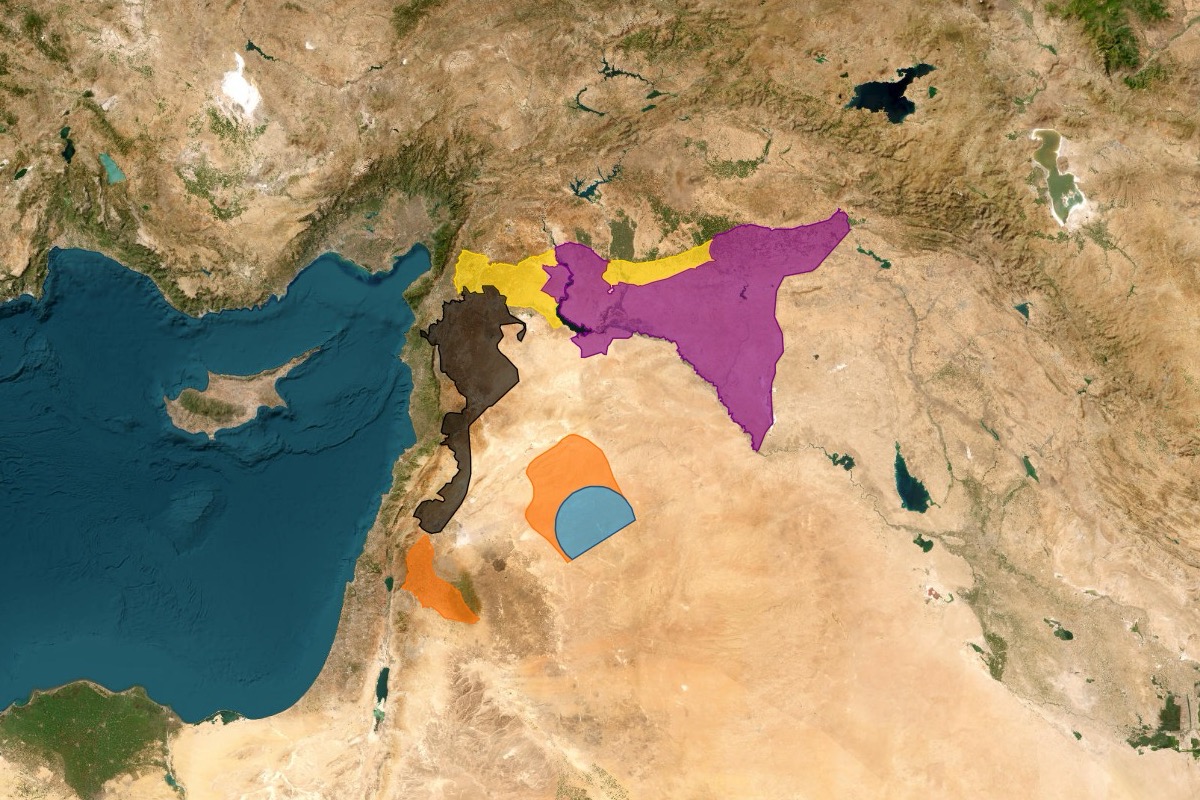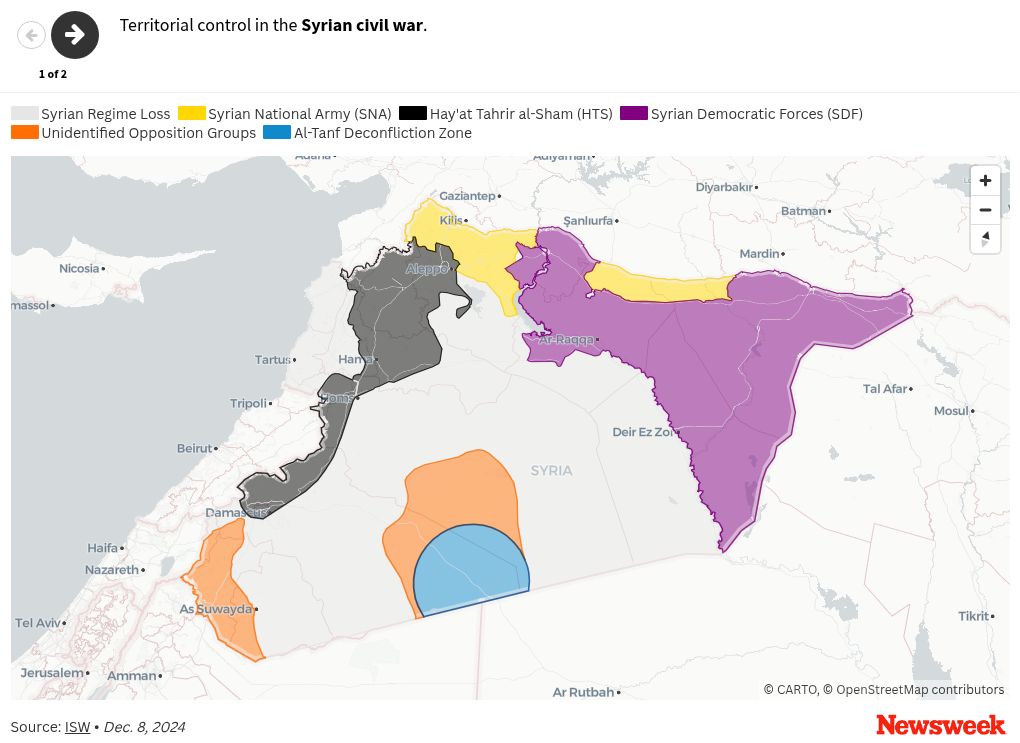The departure of Bashar al-Assad after 24 years in power has left the Syrian state in disarray, with numerous factions each vying for influence and control over territory, while foreign powers continue to intervene in the conflict.
The uprising, which culminated in the president fleeing to Russia as rebels captured the capital city of Damascus, was orchestrated by Hayat Tahrir al-Sham (HTS), an umbrella organization of Sunni militants led by Mohammed al-Jolani.
However, despite being the architects of Assad’s downfall, HTS’s ability to govern over Syria, filled with opposition factions and encircled by expansionist foreign powers, is far from assured.
“There is little question that Hayat Tahrir al-Sham will seek a prominent role in the governance structure of the emerging post-Assad Syria,” Dr. Burcu Ozcelik, Senior Research Fellow in Middle East Security at the Royal United Services Institute, told Newsweek. “As the largest rebel opposition group that delivered the lethal blow to the Assad regime, al-Jolani sees himself as an inevitable and necessary part of any political settlement, but he faces a crisis of legitimacy.”
As well as questions abroad over the group’s legitimacy, Ozcelik said that HTS may be unable to endure for long “without making certain concessions and building consensus with other factions in the Islamist-Jihadist opposition, and the wider Syrian political opposition.”
On Sunday, the D.C.-based Institute for the Study of War (ISW) mapped the current political landscape of Syria, showcasing the regions controlled by HTS, those held by other anti-Assad groups, and the large areas still contested after the withdrawal of government forces.
HTS’s control currently stretches from Aleppo, where the insurgency began in late November, along the Western portion of the country bordering Lebanon and the port cities of Litakia and Tartus, through to the capital, Damascus. The cities of Homs and Hama, two of Syria’s largest by population, were also captured by HTS over the course of the campaign, alongside Idlib, under its control since 2017.
To the north, ISW identified two regions along the Turkish border now held by the Syrian National Army, an Ankara-backed coalition that proved instrumental in HTS’s victory over the government forces.
The umbrella group is currently warring with the Syrian Democratic Forces (SDF), a Kurdish-led, U.S.-backed coalition, for control of the regions bordering Southeast Anatolia, ISW reports.
The SDF currently maintains control over the northeastern region of the country, extending to the borders of Turkey and Iraq. This includes the city of Raqqa, which the group liberated from ISIS in October 2017 and has maintained control over since.
While large portions of central Syria are simply classified by the ISW as “lost regime territory,” and without clear proprietors, the region near the tripoint border with Jordan and Iraq is still under the authority of the Al-Tanf Deconfliction zone, named after the U.S. base established in 2016 amid the Syrian Civil War. The region immediately outside Al-Tanf’s 34-mile radius is controlled by local opposition groups, as is the area on the Israel–Jordan border south of Damascus.
On Sunday, the Israeli Defense Forces also entered the demilitarized “buffer zone” in Syria’s Golan heights, in an effort to prevent “any hostile force” from establishing a presence along its border, according to Prime Minister Benjamin Netanyahu.
“It remains unclear what government structure will emerge among the opposition groups in the coming weeks,” the ISW noted. “It is not a given that HTS will by default lead the next Syrian government.”
“In the immediate term, HTS and other Syrian forces are enjoying widespread popular support for liberating the country,” Dr. Neil Quilliam of Chatham House previously told Newsweek, “but that will quickly pass unless an inclusive transitional government is established, and early signs suggest that is happening.”
As various factions compete for control of the areas surrounding Damascus, HTS will need to establish a governance system that is both effective and avoids replicating the oppressive regime that contributed to Assad’s downfall.
Do you have a story we should be covering? Do you have any questions about this article? Contact LiveNews@newsweek.com.

